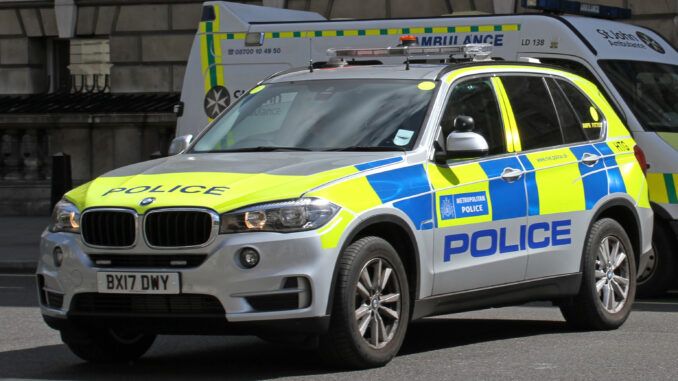
Armed police are being sent to help heart attack patients as the crisis-hit National Health Service (NHS) struggles with staff shortages amid a surging demand
Police officers in armed response vehicles who are trained in first aid and defibrillators are being used to transport cardiac arrest patients to hospital because ambulances are “unable to cope” with the demand.
Welcome to Britain 2022!

BYPASS THE CENSORS
Sign up to get unfiltered news delivered straight to your inbox.
You can unsubscribe any time. By subscribing you agree to our Terms of Use
The Independent reports: Officers are spending up to a third of their time on non-policing matters, a watchdog has warned, including responding to mental health crises and transporting patients to A&E as ambulance services face a “chronic crisis situation”.
Andy Cooke, HM chief inspector of constabulary, said that firearms officers have been responding to pleas from struggling NHS colleagues to respond to cardiac arrests.
He told The Independent that police are becoming the “first, last and only resort” as NHS services buckle under strain, taking them away from tackling crime at a time when recorded offences are at a record high in England and Wales.
Mr Cooke, the former chief constable of Merseyside Police, added: “Recently, officers in armed response vehicles (ARVs) were being sent to reports of people who were having cardiac arrests because the ambulance service couldn’t cope with the demand, because they’re trained in first aid and to use defibrillators.
“The ambulance service contacted the police to say ‘we’ve got this heart patient and we haven’t got anyone to send’.
“Being first, last and only resort, the police will go. It’s right that they did go but that hides the problems we’ve got in the rest of the system.”
One officer who spoke to The Independent anonymously said armed police were regularly being sent to ambulance calls in his force area.
“I see logs every day saying ‘cardiac arrest – can you send an ARV?’” he added. “One even involved a terminally ill patient and I wonder about ringing for an ambulance and police with guns turn up.”
NHS leaders have warned that ambulance services are facing a “chronic crisis situation” as response times worsen and 999 calls hit record highs.
All 10 of the country’s ambulance services were on “black alert”, the highest level possible, last month, with patients needing urgent responses for conditions such as a suspected stroke left waiting for up to two hours.
A parliamentary report warned last week the NHS and the social care sector were facing the “greatest workforce crisis” in their history and said “persistent understaffing” was putting patients’ lives at risk. Long waits for ambulances and A&E services have been exacerbated by record absences fuelled by Covid.
The National Police Chiefs’ Council said officers were having to transport patients to hospital due to a lack of ambulances, which sometimes means they must wait for hours in A&E with mentally ill and vulnerable people who have not committed a crime.
The national lead for local policing, Chief Constable Olivia Pinkney, said: “It reduces the police ability to fight crime and protect people in all the wider ways we should.
“It can also put officers in situations where they are having to make decisions that they are not best placed to make, despite their best endeavours.”


